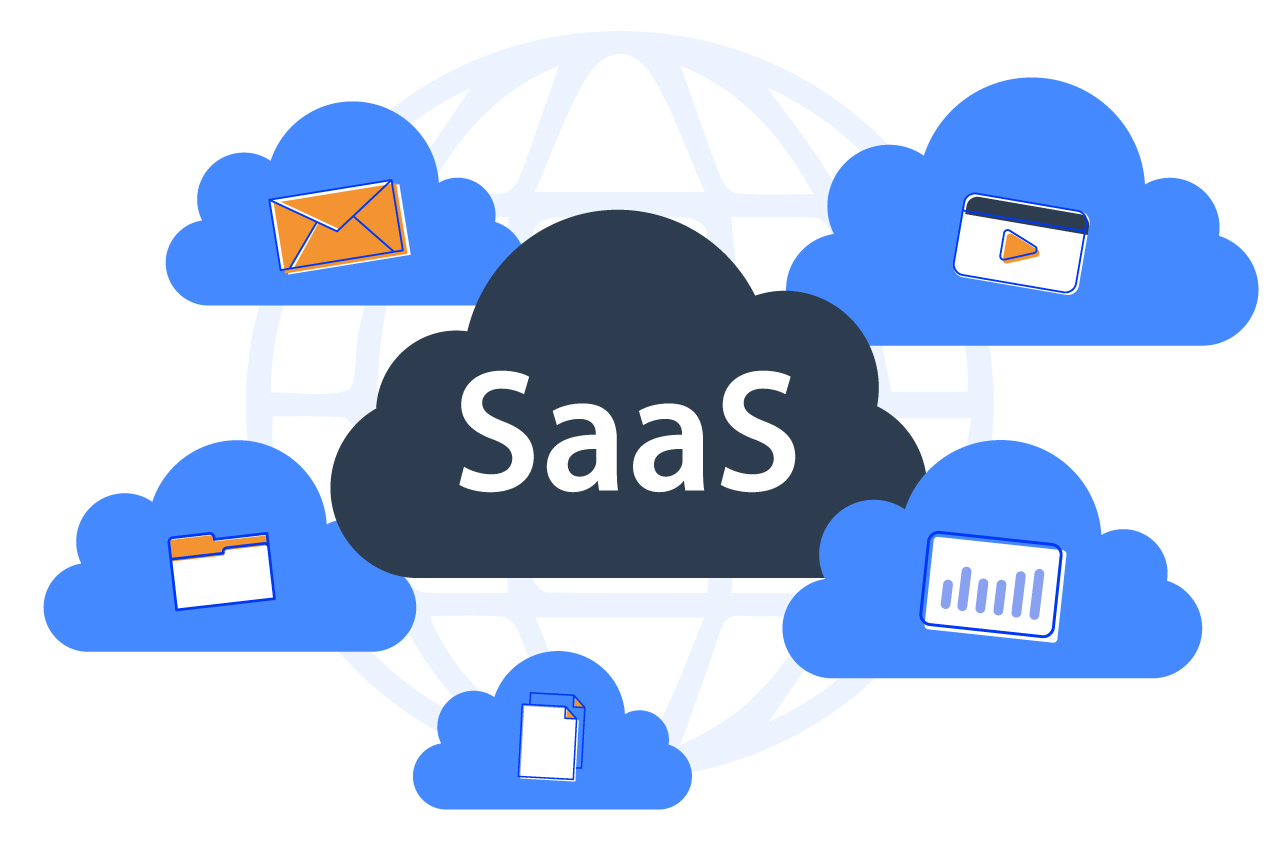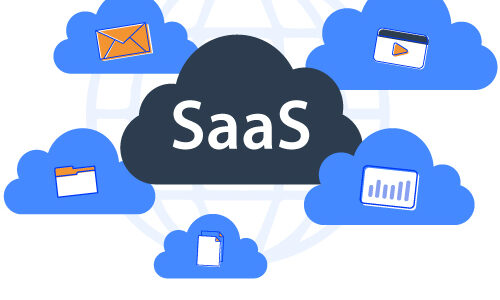Application Hosting (SaaS)
Many companies utilize custom-written applications to further mark their territory in their industry, with proprietary practices that offer unique services or increased efficiency. Many are familiar with the old method: install a client locally onto each computer, and have them connect to a centralized server. However, there are several limitations to this method. You are restricted in the types of computers which can run the client (the app is only designed for Windows 10, not Windows 8 or macOS). If the server is onsite, you may not be able to use the app at all if you are not on premises. This may be desired, but if not, it makes remote work a nightmare, if not impossible.

Your app’s performance is contingent on the physical hardware located on-premises, and if you suddenly have a surge in users, you will have to purchase new hardware with a high upfront cost, or deal with performance issues that cause inefficiency. All of these issues can be resolved by hosting your application using Software as a Service (SaaS) techniques.
The Benefits of SaaS
Hosting the app client on servers, at a minimum, drastically opens up the types of computers that can access the app. Most popular operating systems have the ability to access RemoteApp software. Many mobile devices will be able to as well (though they may not be the most efficient to use with a desktop UI). Your app can also be entirely accessible through a web browser, if you choose to set it up that way. You can control who is able to access the app and from where, so that some employees can work remotely, while others can only do so while in the office.
Moving Your Servers to the Cloud
While you consider moving your app to a cloud solution, take things one step further, and consider moving your servers as well. By hosting all of your infrastructure in the cloud, you eliminate the need for physical server management. Additionally, your resources will scale as necessary, ensuring that you always get as many resources as you need without insane upfront capital expenditure.
SaaS can also be employed for virtually any other applications. Apps such as QuickBooks, SolidWorks, you name it. All hosted and stored entirely on your servers.
Choose the right infrastructure for your application, so you can deliver a solid and reliable end-user experience.
- Dedicated provides traditional and virtualized environments for increased performance and the data isolation of a private, dedicated infrastructure.
- Cloud gives you the flexibility to affordably scale your app as needed.
- Hybrid allows for multiple hosted solutions.
Connect With Our Team
OCCloud9 offers SaaS customers an array of cloud, dedicated, and hybrid hosting services.
When your business uses Software as a Service, or SaaS, Who’s got the App? “OC Cloud9 does”. The integrity of your SaaS infrastructure is critical to its success. OC Cloud9 offers SaaS hosting expertise and a variety of products and services to help ensure that your software application is delivered securely and reliably. Web-enabled applications are as diverse and unique as the companies that develop them. They require unique operating specifications and technical issues from varying computer requirements, storage, security needs and regulatory compliance measures to an often unpredictable load.
At OC Cloud9, we have the technical expertise to help you by designing hosted application infrastructure that’s best suited for your custom app.
You might also like
- QuickBooks in the Cloud: The Sky’s the Limit
- Database Cloud Services in Orange County: Scale at Will
- Distinguishing Between Public, Hybrid, & Private Cloud Solutions
- Quickbooks Cloud Hosting: How to Lower your IT Budget
- How Secure Cloud Technology Mitigates DDoS Attacks
- Suggested Responses to Recent AWS Cloud Outages from Industry Experts
- Creating Cloud Solutions That Benefit Your Company and Streamline Your Work Process
- What is a Cloud Client?
- Private Cloud as a Service
- What is a Community Cloud?
- Private Cloud vs. Virtualization
- Infrastructure as a Services (Iaas)


